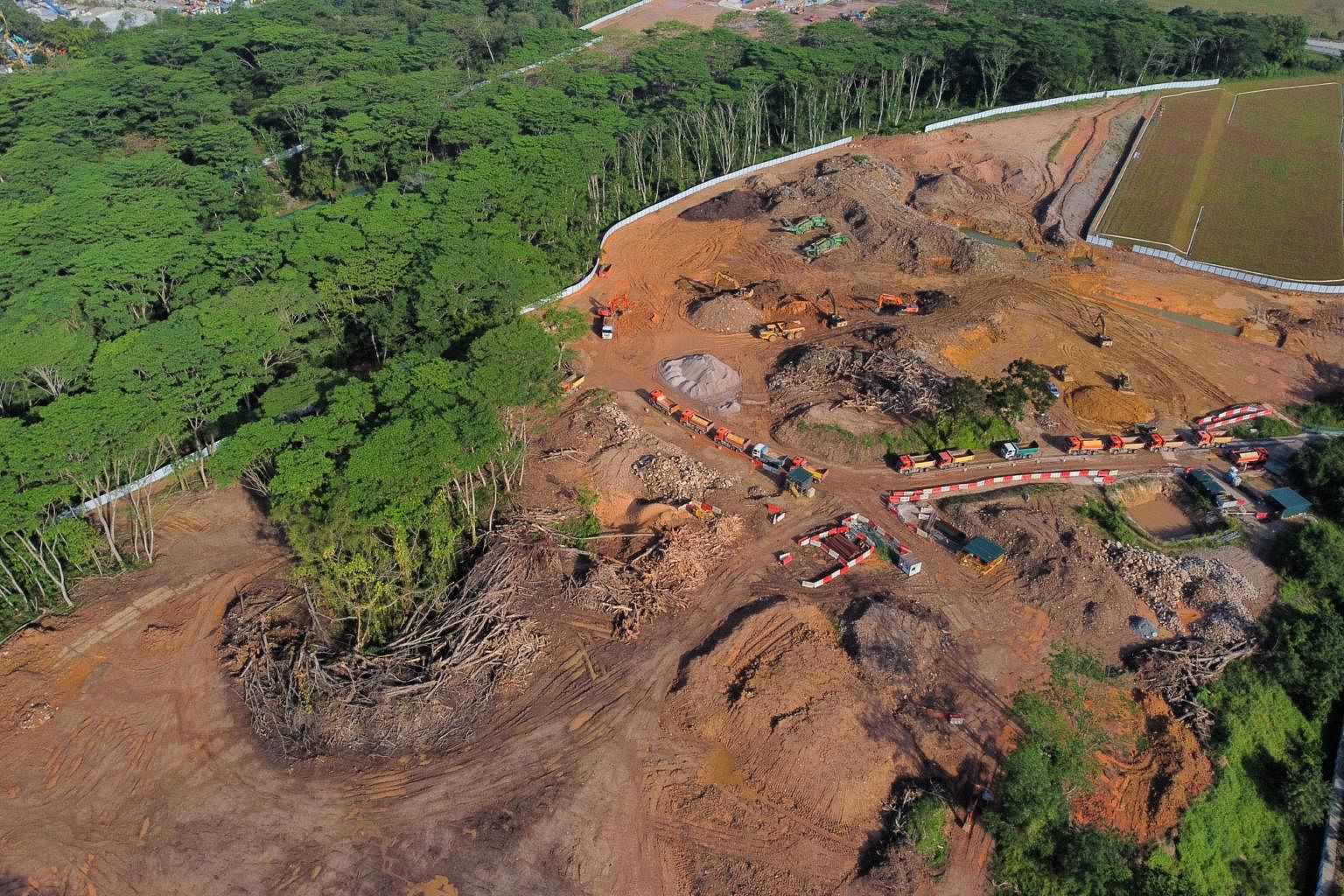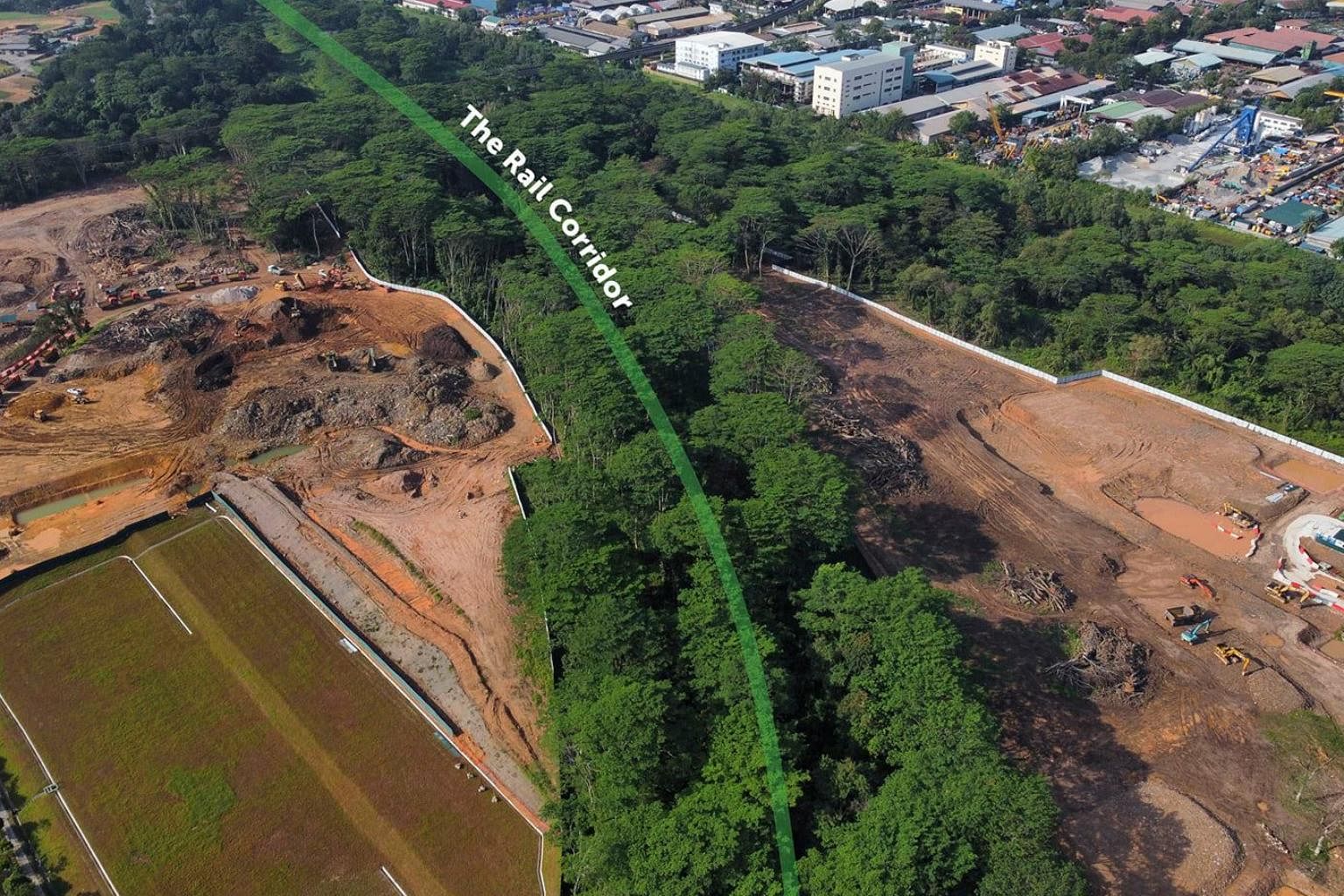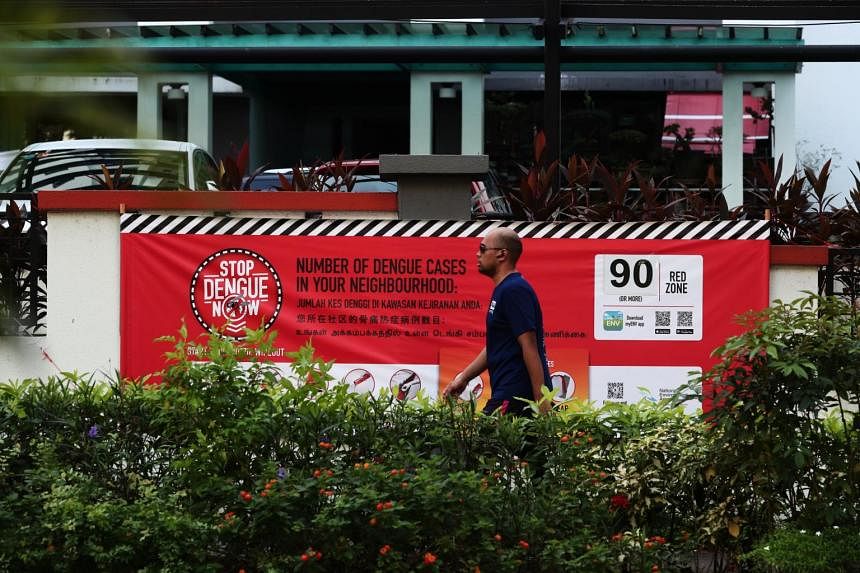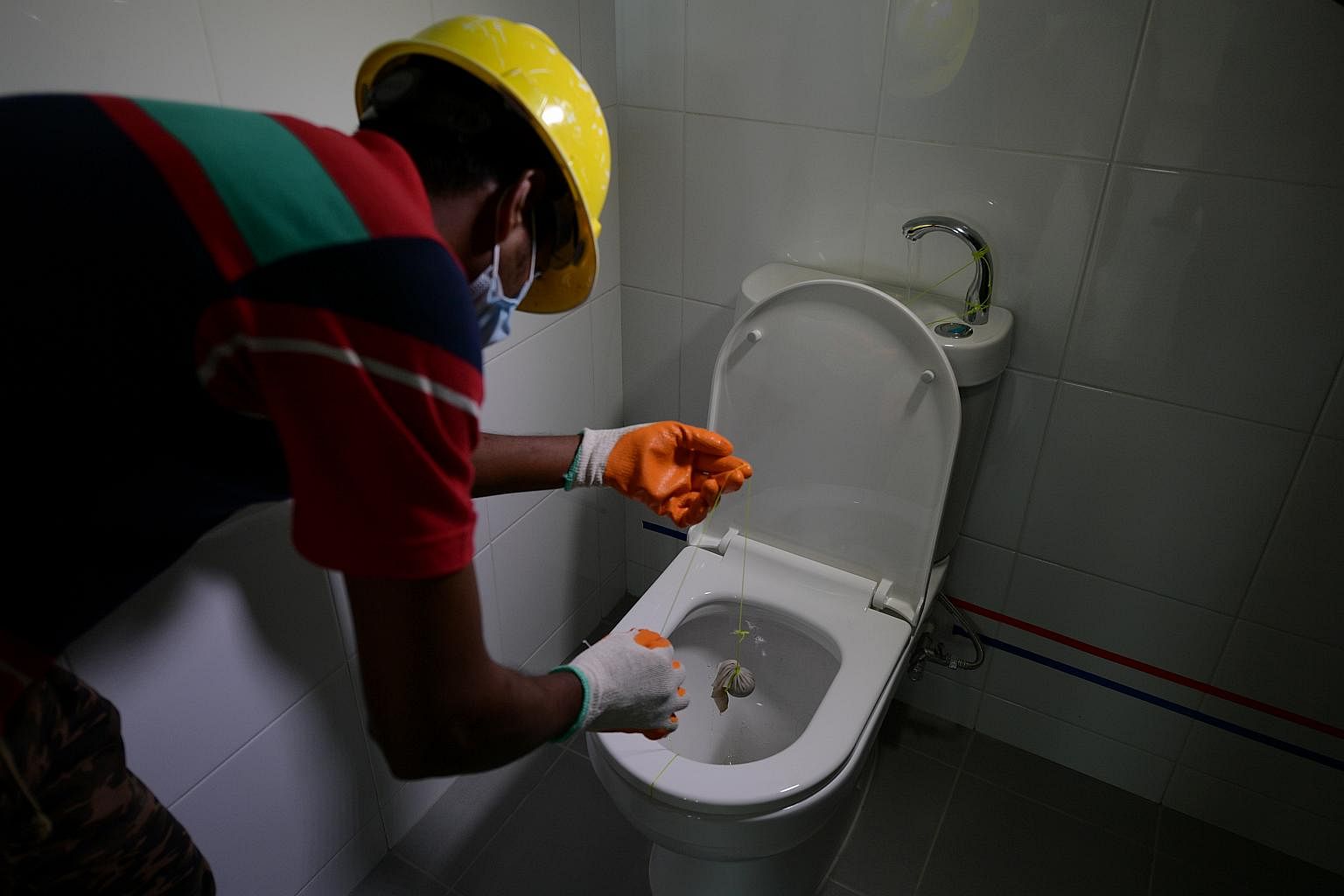- Joined
- Jul 25, 2008
- Messages
- 12,562
- Points
- 113
No need to give the PAP more than that in future elections.
GE2020: PAP wins ‘clear mandate’ in historic Covid elections, but couldn’t prevent WP from making further inroads
By NG JUN SEN, JANICE LIM

People's Action Party
The People's Action Party took 61.24 per cent of the popular vote — this was a “clear mandate” but not as strong as what Prime Minister Lee Hsien Loong said he had hoped for.
SINGAPORE — The historic 13th General Election (GE), which was held against the backdrop of a global pandemic, concluded with the ruling People’s Action Party (PAP) maintaining its dominance in Parliament.
But it could not prevent its main political rival, the Workers’ Party (WP), from making further inroads and winning the newly formed Sengkang Group Representation Constituency (GRC) as well as retaining Hougang Single Member Constituency (SMC) and Aljunied GRC, which it first won in the 2011 polls.
PAP won 83 out of 93 seats and took 61.24 per cent of the popular vote — this was a “clear mandate” but not as strong as what Prime Minister Lee Hsien Loong said he had hoped for.
“But it's a good mandate,” Mr Lee said at a press conference that started at 5am on Saturday (July 11), following the release of the final results of the polls.
“We will make the most of it and we take this as an endorsement of the PAP policies, of our team and of our plans, and we will take this forward and work with Singapore to realise those plans and solve the problems that we have.”
Read also: GE2020: Voting arrangements ‘could have been done better’, thorough review to be conducted, says PM Lee
The overall vote share dipped by almost nine percentage points, compared to the 69.9 per cent share PAP achieved in the previous election in 2015.
It was slightly better than the 60.1 per cent vote share in the 2011 elections, which was PAP’s worst performance since the country's independence.
GE2020 was an unprecedented election that was fought predominantly online and on social media. For the first time in Singapore’s electoral history, the voting hours were extended by two hours to allow all voters to be able to cast their ballots, after longer-than-usual queues had formed earlier in the day due to Covid-19 safety measures.
Read also: GE2020: PAP’s team led by Heng Swee Keat beats WP to win East Coast GRC
While the WP saw its overall vote share decline from 12.48 per cent in GE2015 to 11.22 per cent in GE2020, it not only strengthened its foothold in Hougang SMC and Aljunied GRC, but also captured another GRC.
Other opposition parties made inroads, too. The Progress Singapore Party, which was making its electoral debut, garnered 10.18 per cent of the vote share, and was narrowly defeated in West Coast GRC. The Singapore Democratic Party saw its popular vote share go up from 3.76 per cent in GE2015 to 4.45 per cent in GE2020.
Giving his take on the results of GE2020 for his party, Mr Lee said that the results show broad-based support for PAP, despite the loss of one GRC to the opposition.
Read also: GE2020: PAP narrowly wins West Coast GRC with 51.69% of the vote
“The results reflect the pain and uncertainty that Singaporeans feel in this crisis, the loss of income, the anxiety of our jobs, the disruption caused by the circuit breaker and the safe distancing restrictions,” he added.
“This was not a feel-good election, but one where people are facing real problems and expect more rough weather to come.”
Mr Lee said that he had called WP's secretary-general Pritam Singh after the confirmation of the results to congratulate him.
Read also: GE2020: Workers’ Party’s performance a ‘pleasant surprise’, but not quantum leap, says Pritam Singh
“I told Mr Singh that with 10 MPs, I think it is right that he, the Workers’ Party leader, be formally designated as the leader of the opposition, and that he will be provided with appropriate staff support and resources to perform his duties. And he thanked me for this.”
The results also showed “a clear desire for a diversity of voices in Parliament”, especially among the younger voters, Mr Lee noted.
When asked if PAP had lost the youth vote this time, Mr Lee said the factors that led to PAP’s GE2020 performance will need to be analysed in due course.
Read also: GE2020: Workers’ Party claims Sengkang GRC in upset win
“I would say that different generations have different life experiences and the young people have very significantly different life aspirations and priorities compared to the older generations, and that this will have to be reflected in our political process and in government policies because in the end, the government policies must be to achieve the aspirations of every generation of Singaporeans.”
However, he also hopes that younger generations would keep an open mind with what previous generations have done, and learn from these experiences “hard won by their parents and grandparents so that they don't have to learn them all over again and pay a high price which has already been paid”, he added.
Analysts said that the huge drop in overall vote share for PAP should trigger some “soul-searching” within the party, and particularly among its fourth generation (4G) leaders.
Read also: GE2020: Workers’ Party retains Aljunied GRC with improved margin
Young voters, especially, do not buy some of the tactics that the party has employed during the hustings.
Dr Felix Tan, associate lecturer at SIM Global Education, said that PAP’s attacks on some opposition candidates probably did not sit well with some young voters as they felt it might have been “unfairly played out”.
“If that was the strategy about 20 years ago, perhaps it might have worked. But 20 years later when people are a little bit more discerning and people are more educated, I don’t think people will stand for such tactics,” he said.
Read also: GE2020: Workers’ Party retains Hougang stronghold
Agreeing, Associate Professor Bilveer Singh from the National University of Singapore said that young voters tend to be idealistic.
“They like fairplay and something can be legal but if it is considered unjust, they will not like it,” he added.
Assistant Professor Walid Jumblatt Abdullah of Nanyang Technological University’s School of Social Sciences said that the drop in vote share could possibly signal a lack of confidence in the 4G leadership. This is because the typical flight-to-safety mindset during a crisis, presented by the Covid-19 pandemic, did not occur.
Read also: GE2020: SDP goes away empty-handed, but sees increase in vote share in key challenges
However, Assoc Prof Singh questioned the extent to which the third-generation leadership should be blamed, since they have remained in “anchor positions of policymaking”.
The marginal win of Mr Heng Swee Keat at East Coast GRC may not look good on someone who is widely tipped to be the next prime minister, but Asst Prof Walid said that Mr Heng could have been the reason why PAP did not lose another GRC.
“They really need to do some soul-searching and learn the right lessons,” he said.
During the PAP press conference, Mr Lee said that for many years, he had been preparing the 4G team to take over the reins but did not expect the “overwhelming crisis” of Covid-19 to occur in the last stretch of his premiership.
Mr Lee, reiterating a point he made at his virtual lunchtime rally last week, said that he is determined to see the crisis through with his generation of leaders — namely Mr Teo Chee Hean, Mr Tharman Shanmugaratnam and Mr K Shanmugam — as well as with the 4G team, including Mr Heng and Mr Chan Chun Sing.
He described how it was a blow to lose the Sengkang GRC team, consisting of three political office-holders including labour chief Ng Chee Meng.
He said: “The work of the new government begins at once. My government will work with all of you to overcome the present health and economic crisis and emerge stronger. With this election now behind us, let us work as one Singapore to secure our lives, our jobs, and our future.”
Read more at https://www.todayonline.com/singapo...-9tdrUIUVKetmvyPObtgM4she1B-HRCRc_OldoJhwk02I
GE2020: PAP wins ‘clear mandate’ in historic Covid elections, but couldn’t prevent WP from making further inroads
By NG JUN SEN, JANICE LIM
People's Action Party
The People's Action Party took 61.24 per cent of the popular vote — this was a “clear mandate” but not as strong as what Prime Minister Lee Hsien Loong said he had hoped for.
- The historic 13th General Election was held against the backdrop of a global pandemic
- PAP won 83 out of 93 seats and took 61.24 per cent of the popular vote
- This was a “clear mandate” but not as strong as what Prime Minister Lee Hsien Loong said he had hoped for
- The results reflect the pain and uncertainty that Singaporeans feel in this crisis, he said
- They also showed “a clear desire for a diversity of voices in Parliament”, especially among younger voters
SINGAPORE — The historic 13th General Election (GE), which was held against the backdrop of a global pandemic, concluded with the ruling People’s Action Party (PAP) maintaining its dominance in Parliament.
But it could not prevent its main political rival, the Workers’ Party (WP), from making further inroads and winning the newly formed Sengkang Group Representation Constituency (GRC) as well as retaining Hougang Single Member Constituency (SMC) and Aljunied GRC, which it first won in the 2011 polls.
PAP won 83 out of 93 seats and took 61.24 per cent of the popular vote — this was a “clear mandate” but not as strong as what Prime Minister Lee Hsien Loong said he had hoped for.
“But it's a good mandate,” Mr Lee said at a press conference that started at 5am on Saturday (July 11), following the release of the final results of the polls.
“We will make the most of it and we take this as an endorsement of the PAP policies, of our team and of our plans, and we will take this forward and work with Singapore to realise those plans and solve the problems that we have.”
Read also: GE2020: Voting arrangements ‘could have been done better’, thorough review to be conducted, says PM Lee
The overall vote share dipped by almost nine percentage points, compared to the 69.9 per cent share PAP achieved in the previous election in 2015.
It was slightly better than the 60.1 per cent vote share in the 2011 elections, which was PAP’s worst performance since the country's independence.
GE2020 was an unprecedented election that was fought predominantly online and on social media. For the first time in Singapore’s electoral history, the voting hours were extended by two hours to allow all voters to be able to cast their ballots, after longer-than-usual queues had formed earlier in the day due to Covid-19 safety measures.
Read also: GE2020: PAP’s team led by Heng Swee Keat beats WP to win East Coast GRC
While the WP saw its overall vote share decline from 12.48 per cent in GE2015 to 11.22 per cent in GE2020, it not only strengthened its foothold in Hougang SMC and Aljunied GRC, but also captured another GRC.
Other opposition parties made inroads, too. The Progress Singapore Party, which was making its electoral debut, garnered 10.18 per cent of the vote share, and was narrowly defeated in West Coast GRC. The Singapore Democratic Party saw its popular vote share go up from 3.76 per cent in GE2015 to 4.45 per cent in GE2020.
Giving his take on the results of GE2020 for his party, Mr Lee said that the results show broad-based support for PAP, despite the loss of one GRC to the opposition.
Read also: GE2020: PAP narrowly wins West Coast GRC with 51.69% of the vote
“The results reflect the pain and uncertainty that Singaporeans feel in this crisis, the loss of income, the anxiety of our jobs, the disruption caused by the circuit breaker and the safe distancing restrictions,” he added.
“This was not a feel-good election, but one where people are facing real problems and expect more rough weather to come.”
Mr Lee said that he had called WP's secretary-general Pritam Singh after the confirmation of the results to congratulate him.
Read also: GE2020: Workers’ Party’s performance a ‘pleasant surprise’, but not quantum leap, says Pritam Singh
“I told Mr Singh that with 10 MPs, I think it is right that he, the Workers’ Party leader, be formally designated as the leader of the opposition, and that he will be provided with appropriate staff support and resources to perform his duties. And he thanked me for this.”
The results also showed “a clear desire for a diversity of voices in Parliament”, especially among the younger voters, Mr Lee noted.
When asked if PAP had lost the youth vote this time, Mr Lee said the factors that led to PAP’s GE2020 performance will need to be analysed in due course.
Read also: GE2020: Workers’ Party claims Sengkang GRC in upset win
“I would say that different generations have different life experiences and the young people have very significantly different life aspirations and priorities compared to the older generations, and that this will have to be reflected in our political process and in government policies because in the end, the government policies must be to achieve the aspirations of every generation of Singaporeans.”
However, he also hopes that younger generations would keep an open mind with what previous generations have done, and learn from these experiences “hard won by their parents and grandparents so that they don't have to learn them all over again and pay a high price which has already been paid”, he added.
Analysts said that the huge drop in overall vote share for PAP should trigger some “soul-searching” within the party, and particularly among its fourth generation (4G) leaders.
Read also: GE2020: Workers’ Party retains Aljunied GRC with improved margin
Young voters, especially, do not buy some of the tactics that the party has employed during the hustings.
Dr Felix Tan, associate lecturer at SIM Global Education, said that PAP’s attacks on some opposition candidates probably did not sit well with some young voters as they felt it might have been “unfairly played out”.
“If that was the strategy about 20 years ago, perhaps it might have worked. But 20 years later when people are a little bit more discerning and people are more educated, I don’t think people will stand for such tactics,” he said.
Read also: GE2020: Workers’ Party retains Hougang stronghold
Agreeing, Associate Professor Bilveer Singh from the National University of Singapore said that young voters tend to be idealistic.
“They like fairplay and something can be legal but if it is considered unjust, they will not like it,” he added.
Assistant Professor Walid Jumblatt Abdullah of Nanyang Technological University’s School of Social Sciences said that the drop in vote share could possibly signal a lack of confidence in the 4G leadership. This is because the typical flight-to-safety mindset during a crisis, presented by the Covid-19 pandemic, did not occur.
Read also: GE2020: SDP goes away empty-handed, but sees increase in vote share in key challenges
However, Assoc Prof Singh questioned the extent to which the third-generation leadership should be blamed, since they have remained in “anchor positions of policymaking”.
The marginal win of Mr Heng Swee Keat at East Coast GRC may not look good on someone who is widely tipped to be the next prime minister, but Asst Prof Walid said that Mr Heng could have been the reason why PAP did not lose another GRC.
“They really need to do some soul-searching and learn the right lessons,” he said.
During the PAP press conference, Mr Lee said that for many years, he had been preparing the 4G team to take over the reins but did not expect the “overwhelming crisis” of Covid-19 to occur in the last stretch of his premiership.
Mr Lee, reiterating a point he made at his virtual lunchtime rally last week, said that he is determined to see the crisis through with his generation of leaders — namely Mr Teo Chee Hean, Mr Tharman Shanmugaratnam and Mr K Shanmugam — as well as with the 4G team, including Mr Heng and Mr Chan Chun Sing.
He described how it was a blow to lose the Sengkang GRC team, consisting of three political office-holders including labour chief Ng Chee Meng.
He said: “The work of the new government begins at once. My government will work with all of you to overcome the present health and economic crisis and emerge stronger. With this election now behind us, let us work as one Singapore to secure our lives, our jobs, and our future.”
Read more at https://www.todayonline.com/singapo...-9tdrUIUVKetmvyPObtgM4she1B-HRCRc_OldoJhwk02I










